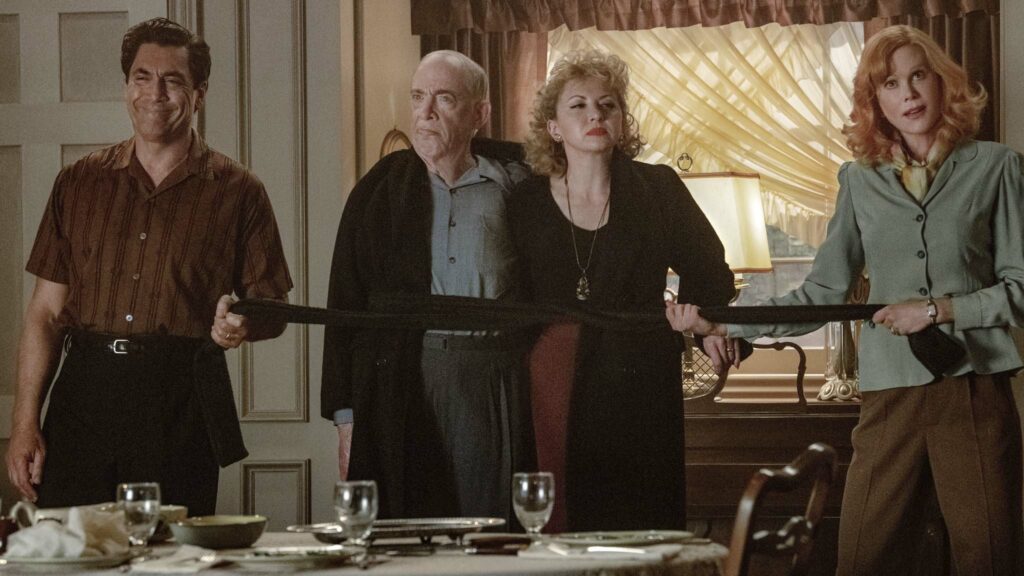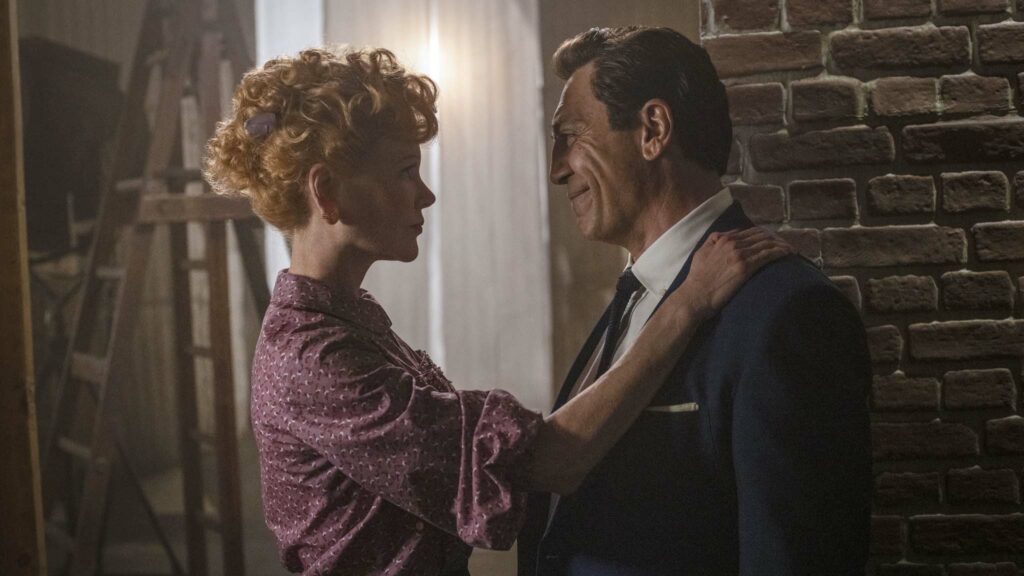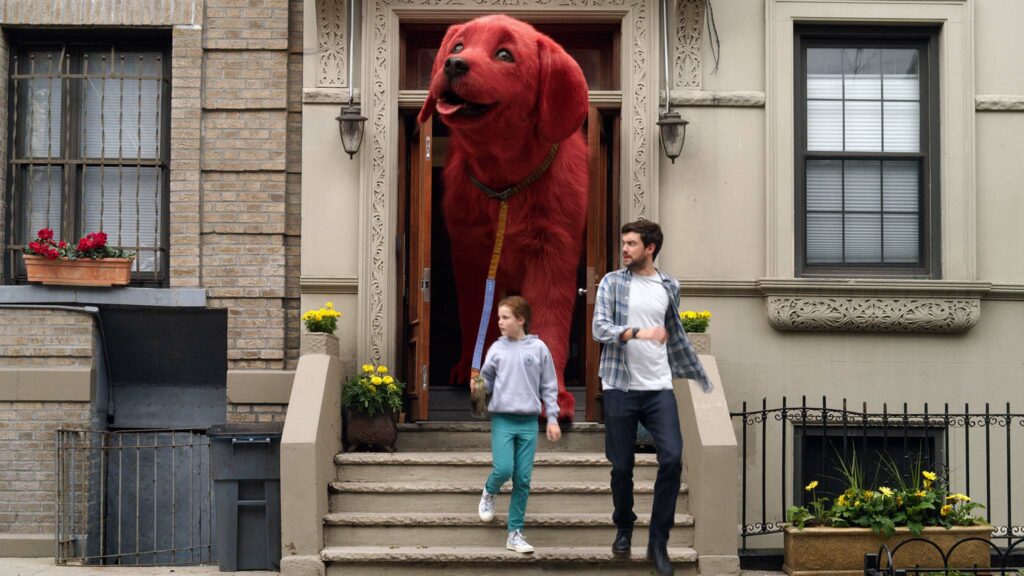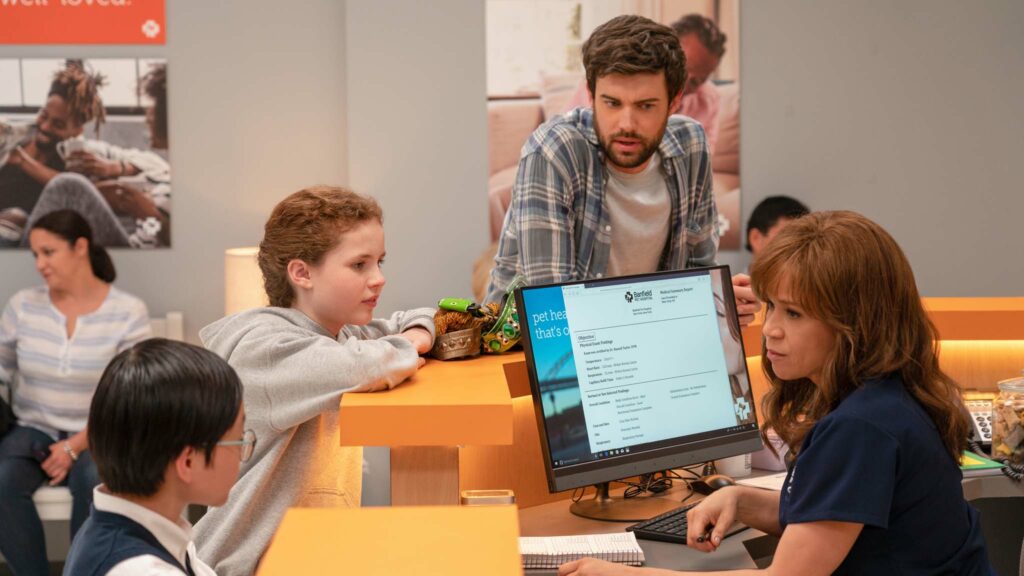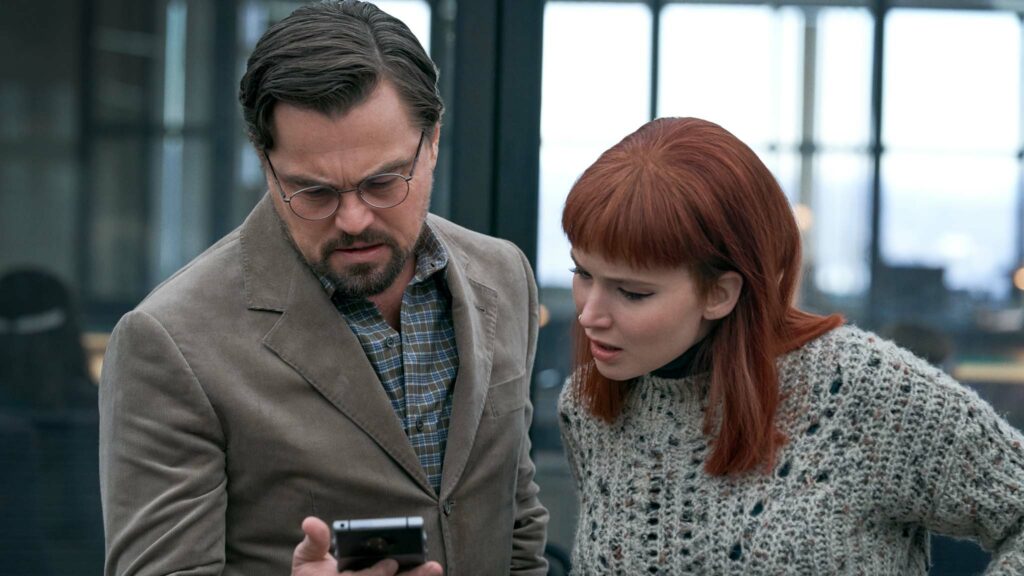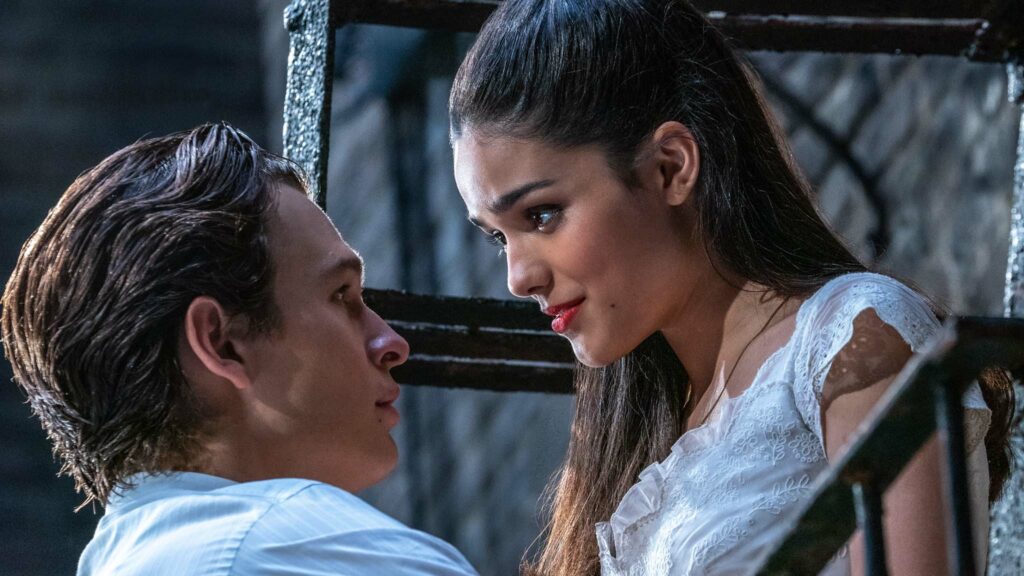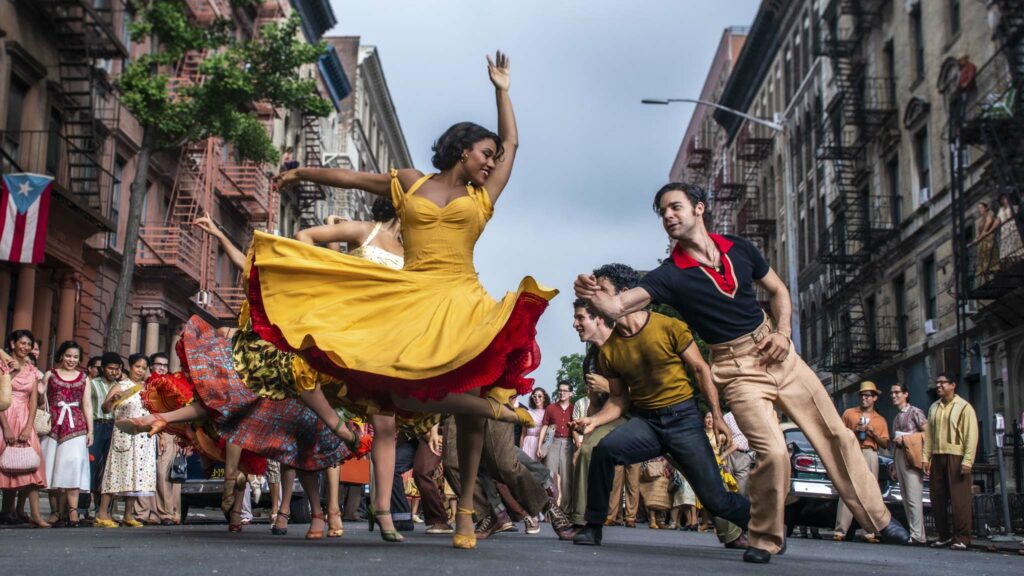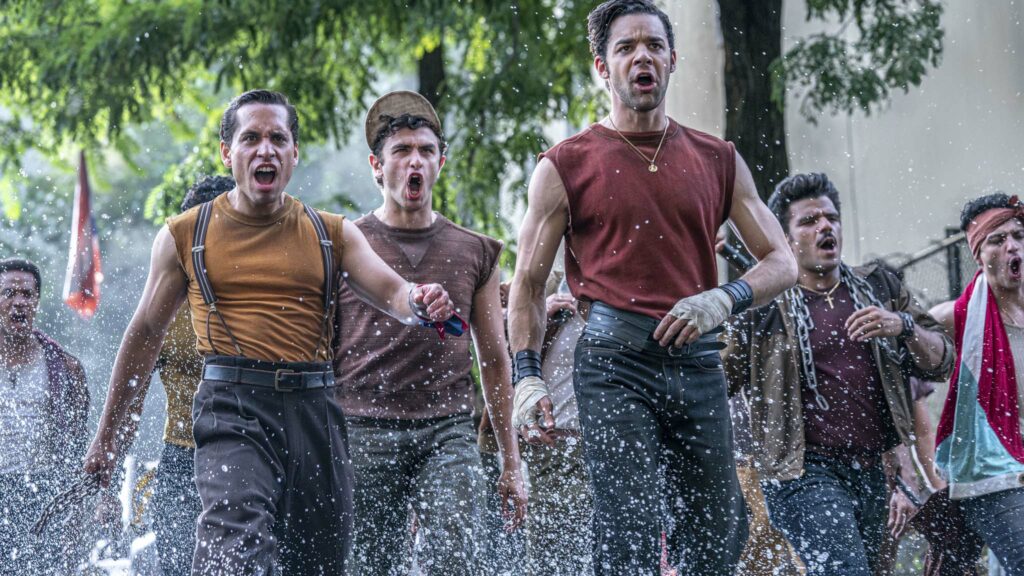Drama
Being The Ricardos (15)
Review: At its peak, sitcom I Love Lucy starring husband and wife Desi Arnaz and Lucille Ball attracted family audiences of up to 60 million to CBS on Monday nights. The half-hour show, which was recorded on three cameras in front of a studio audience, was so popular that one department store in Chicago moved its late-night opening to Thursdays, to avoid competing with the weekly misadventures of the fictional Ricardos.
Academy Award-winning writer-director Aaron Sorkin dramatises behind-the-scenes strife during one pivotal week of production on the 1952 episode Fred And Ethel Fight, when political smears and salacious headlines threaten Arnaz and Ball’s marriage. His script applies a generous salve of artistic licence – one of the splashiest set-pieces is inspired by an event that took place more than 18 months later than depicted – but Being The Ricardos never purports to be tightly handcuffed to fact.
Recreations of favourite moments, including the grape-stomping in the 1956 episode Lucy’s Italian Movie, underscore Ball’s natural flair for physical comedy. Few scriptwriters can match Sorkin for tart, fizzing, rat-a-tat dialogue that pops on the actors’ tongues like lemon sherbet. He arms a stellar cast with an arsenal of zingers, delivered at breakneck speed for prolonged stretches, and slowed to land an emotional blow.
Nicole Kidman is a knockout as Ball, nailing the goofiness and wild gesticulations whenever a director calls “Action”, and she catalyses molten screen chemistry with fellow Oscar winner Javier Bardem. This film opens on a sound stage where executive producer Jess Oppenheimer (Tony Hale), writers Bob Carroll Jr (Jake Lacy) and Madelyn Pugh (Alia Shawkat) and actors William Frawley (JK Simmons) and Vivian Vance (Nina Arianda), who play landlord Fred Mertz and his wife Ethel in I Love Lucy, are gathered for the table read of Fred And Ethel Fight.
Lucille (Kidman) and Desi (Bardem) are delayed by an urgent meeting with powerful men in suits to discuss a radio show’s allegation that senator Joseph McCarthy and the House un-American activities committee have accused Ball of being a Communist. “If you tape a show Friday night, means you still have a show,” sombrely counsels studio executive Howard Wenke (Clark Gregg).
Being The Ricardos is a beautifully crafted valentine to showbusiness at a time when the studio system made women beholden to male studio heads. Aided by prosthetics, the chameleonic Kidman eschews simple mimicry to powerfully convey an infuriating perfectionist spirit with terrific support from Arianda and Shawcat as strong, intelligent and outspoken women on both sides of the camera. Sorkin has fewer opportunities for directorial brio than his previous film, The Trial Of The Chicago 7. His script and the sparkling cast accomplish the heavy lifting.
Find Being The Ricardos in the cinemas
Comedy
Clifford The Big Red Dog (PG)
Review: Hoping to disprove the notion that the loveliest gifts come in small packages, director Walt Becker’s supersized family comedy unleashes a hulking runt of a litter on New York City and revels in the devastation as the mutt pounces on a Zorb in Central Park and breaks a veterinarian’s expensive weighing scales. Clifford The Big Red Dog is based on the beloved series of children’s books by Norman Bridwell dating back to the 1960s and Becker’s film shares many of the tail-wagging title character’s traits. It’s boundlessly energetic, eager to please, occasionally clumsy and tiring for periods.
The digitally rendered hero, who teaches a bullied girl the power of love and self-belief, is cartoonishly cute and gels with live-action elements including a human cast led by Jack Whitehall, whose faltering American accent could have been dropped since his man-child pointedly discloses he was born in England. The comedian and actor is the butt of the pooch-oriented jokes. He is accidentally sprayed when Clifford cocks a leg and is handed a thermometer to gauge the pet’s temperature in a place “that rhymes with nut hole”. There is plentiful sweetness to offset the silly, delivered in spades by young lead Darby Camp, and John Cleese has a twinkle in his eye as a modern-day Dr Dolittle with a gift for pairing abandoned creatures and emotionally crippled owners.
Twelve-year-old Emily Elizabeth Howard (Camp) is the new girl in sixth grade at Thatcher Academy. She is bullied mercilessly by mean girl Florence (Mia Ronn), who cruelly nicknames the scholarship student “Food Stamp”. When Emily’s paralegal mother Maggie (Sienna Guillory) leaves town on business for a couple of days, lackadaisical uncle Casey (Whitehall) babysits his niece. On their first morning together, they visit the pop-up animal shelter run by Mr Bridwell (Cleese), who suggests the adoption of a temperamental tortoise or stand-up chameleon. Instead, Emily is smitten with a mischievous golden retriever pup with beetroot fur.
“How big is he gonna get?” she inquires. “That depends… on how much you love him,” cryptically responds Mr Bridwell. Overnight, the pooch – christened Clifford – grows to monstrous proportions and attracts the attention of building superintendent Packard (David Alan Grier), who forbids pets on the premises. When footage of Clifford goes viral, scheming biotech chief executive Zac Tieran (Tony McHale) dispatches underlings to capture the towering canine and sequence its DNA as the missing piece of his “feed the world with giant food” puzzle.
Clifford The Big Red Dog is unabashedly playful and chaotic, peppered with pratfalls and pantomime villainy. Camp’s heartfelt lead performance provides ballast to Whitehall’s tomfoolery (an opening sight gag with hand sanitiser sets the tone) and lends credibility to a grandstand plea for compassion and acceptance that only happens in the movies.
Find Clifford The Big Red Dog in the cinemas
Comedy
Don't Look Up (15)
Review: In the aftermath of the UN Climate Change Conference held in Glasgow, where the goals of the 2015 Paris Agreement remained frustratingly out of reach, the notion of an unequivocal global response to protect the planet seems laughable. Writer-director Adam McKay is laughing, through gritted teeth, and he encourages us to do the same with his bruising satire of the climate change crisis and misinformation in an age of rolling 24-hour news. Don’t Look Up makes merry from an imminent extinction-level event that will exterminate life on the third rock from the sun.
Before the special effects department can unleash a tsunami of cataclysmic digital trickery worthy of an overblown Roland Emmerich disaster movie, McKay takes pot shots at the political elite, journalism, celebrities, social media and corporate greed. He draws a few droplets of blood – Ariana Grande’s portrayal of a pop starlet in the throes of a high profile break-up from her rapper beau (Scott Mescudi) is a hoot – but he only registers flesh wounds compared to the juicy, deep lacerations of his previous two pictures, The Big Short and Vice. Starry A-listers including Leonardo DiCaprio, Jennifer Lawrence, Meryl Streep, Mark Rylance and Cate Blanchett twinkle intermittently but some of the cast burn out before a running gag about AI-predicted death delivers a grisly punchline.
Michigan State University astronomy graduate Kate Dibiasky (Lawrence) is photographing the starry firmament while listening to Wu-Tang Clan when she makes a shocking discovery. A comet the size of Mount Everest is on a collision course with Earth and will impact in exactly six months and 14 days. Kate’s nerve-jangled professor Randall Mindy (DiCaprio) contacts Dr Teddy Oglethorpe (Rob Morgan) at Nasa’s Planetary Defence Coordination Office to facilitate a meeting at the White House.
Kate and Randall’s data is brushed aside by President Janie Orlean (Streep) and Chief of Staff, her drug-addled son Jason (Jonah Hill), who want to “sit tight and assess”. They are three weeks away from mid-terms and are mired in scandal about an unfortunate choice of nominee for the Supreme Court. Enraged by the political apathy, Kate and Randall risk arrest by the FBI with an appearance on morning TV show The Daily Rip hosted by the chirpy double act of Brie Evantree (Blanchett) and Jack Bremmer (Tyler Perry).
Burdened with a running time uncomfortably over two hours, Don’t Look Up ironically makes us silently wish for a speedier end to the world. Lawrence and DiCaprio combust amusingly on screen with frustration in stark contrast to Streep’s slippery stateswoman full of Trumpian bombast. Rylance’s impish embodiment of a quixotic telecommunications billionaire (“the third richest human ever”) is by turns creepy and child-like. A saggy middle section, including a poorly utilised Timothee Chalamet, is redeemed by a curiously poignant and sentimental finale.
Find Don't Look Up in the cinemas
Musical
West Side Story (12A)
Review: In a feature film career stretching back 40 years to the nail-biting road rage thriller Duel, director Steven Spielberg has nimbly traversed genres, smashed box office records and collected two Academy Awards for his impeccable work behind the camera. For all that deserved success and his mastery of the modern blockbuster with Jaws, E.T. The Extra-Terrestrial and Jurassic Park, Spielberg has thus far shimmied away from the heightened reality of a big screen musical.
Very good things come to those who wait because his update of West Side Story is a visually stunning, unreservedly old-fashioned song and dance spectacle on a grandiose scale, which pays due reverence to stage and screen predecessors, the book by Arthur Laurents, music by Leonard Bernstein and lyrics by Stephen Sondheim. Sixty years after Robert Wise and Jerome Robbins’ Oscar-winning film opened with those syncopated finger snaps to introduce the feuding Jets and Sharks, screenwriter Tony Kushner addresses cultural insensitivities head-on.
Every Puerto Rican character is played by an actor from the Latinx community, Spanish dialogue has no English subtitles as a mark of respect to the language, and drugstore owner Doc has been replaced with his widow Valentina to provide an eye-catching role for Rita Moreno, Oscar-winning star of the 1961 film. The Wise and Robbins take on West Side Story was nominated for 11 Academy Awards and Spielberg and his creative collaborators won’t be far behind.
Production and costume design powerfully evoke gentrified 1950s New York and its fashionable swagger, the editing of musical sequences is en pointe, while Spielberg’s long-time cinematographer, Janusz Kaminski, conjures breathtaking imagery like streetlights reflected in standing water in an overhead shot of Tony singing Maria or the elongated shadows of rival gangs stretching towards each other for an ill-fated “rumble”. Those tensions are inflamed when Jets co-founder Tony (Ansel Elgort), recently released from prison after almost beating a boy to death, defies best friend Riff (Mike Faist) and falls head over heels in love with Maria (Rachel Zegler), baby sister of Sharks leader Bernardo (David Alvarez).
West Side Story nods respectfully to previous incarnations including choreographer Justin Peck’s breathless riffs on Robbins’ stylised movements. Elgort can’t match the intensity of co-stars – in some scenes he doesn’t seem entirely present – but there is a tenderness to his duet with Zegler on Tonight.
She brings palpable fire to her role and Ariana DeBose melts every frame as Bernardo’s sassy girlfriend Anita – the role which secured Moreno her Oscar – including a skirt-swishing rendition of America worthy of a standing ovation. Moreno delivers a haunting solo of Somewhere that tingles down the spine and underscores the raw emotion coursing beneath the technical virtuosity.
Find West Side Story in the cinemas


